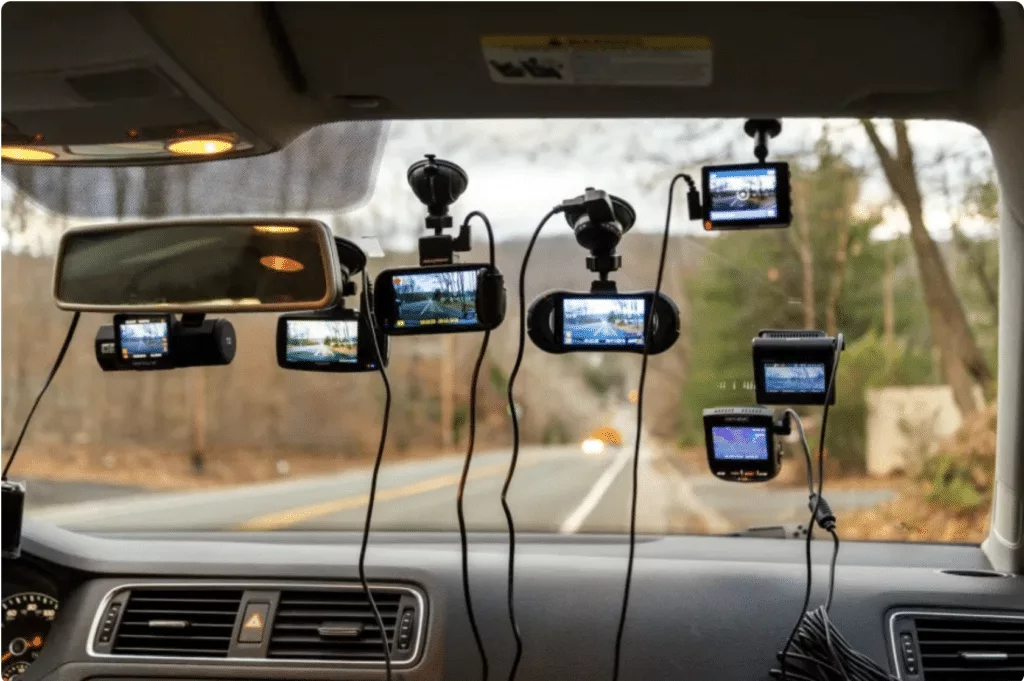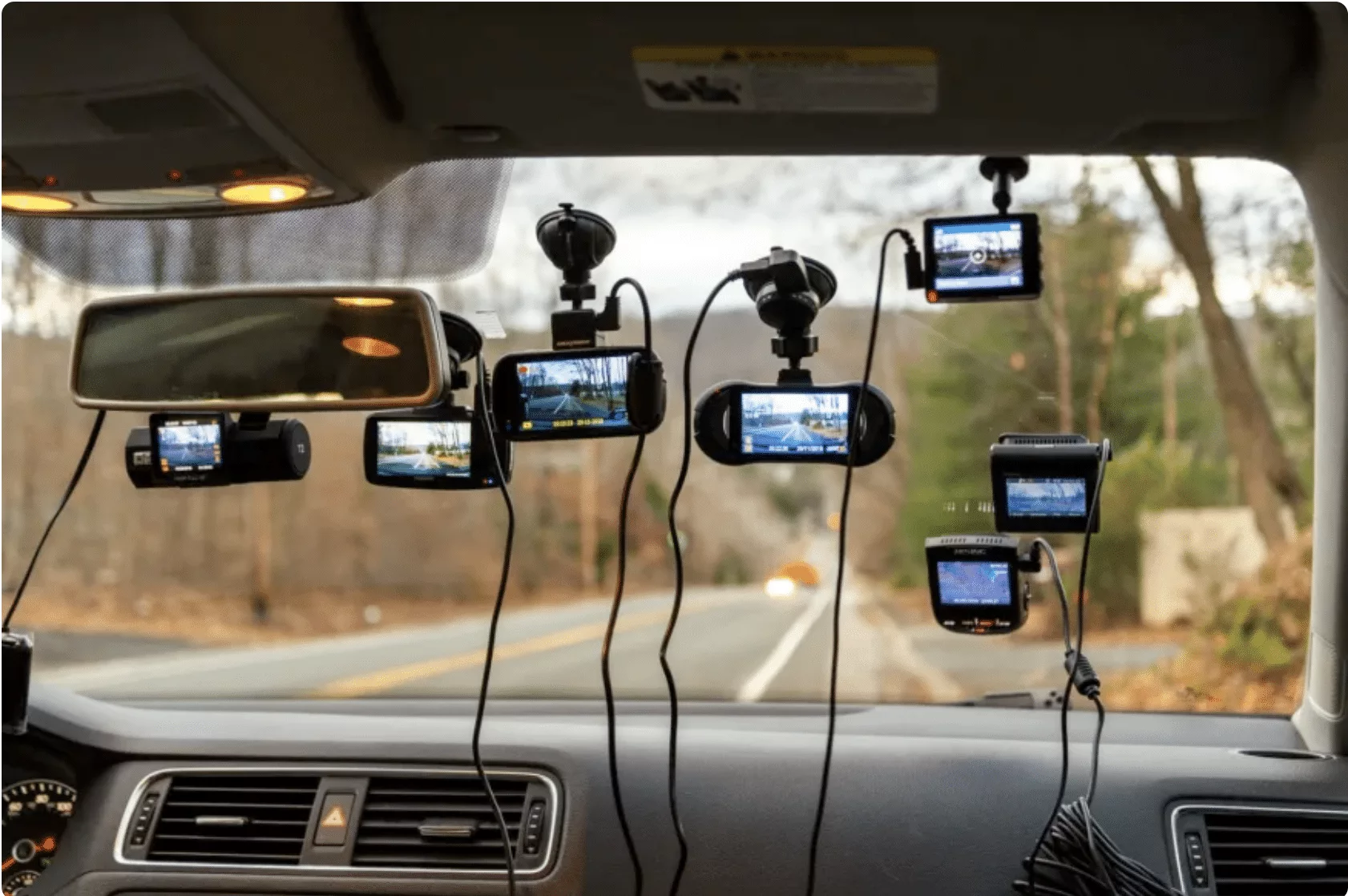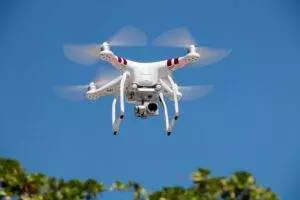Buyer’s Guide: Dash Cams
And Do I Need One?

Introduction:
So When it comes to dash cams what do i need Driving in todays world can be a mine field, especially if you have a crash! Dash cams have become increasingly popular as a means of recording road trips, capturing unexpected incidents, and providing evidence in case of accidents.
A lot of insurance companies offer discounts if you use them and depending what you do for a living, they can even insist on them! With a wide range of options available, choosing the right dash cam can be overwhelming. Don’t worry, we’ll help! This comprehensive buyer’s guide aims to help you navigate through the key considerations and features to find the perfect dash cam that suits your needs and preferences.
Let’s answer the question, dash cams what do I need?
1. Video Quality:
Video quality is a crucial aspect to consider when purchasing a dash cam. Look for dash cams that offer high-resolution recording, preferably Full HD (1080p) or even 4K resolution. Ensure that the dash cam provides clear and detailed footage, especially during daytime and nighttime conditions.
2. Field of View (FOV):
The field of view refers to the extent of the scene captured by the dash cam. A wider FOV allows for a broader perspective, capturing more details on the road. Look for dash cams with a wide-angle lens, typically ranging from 120 to 180 degrees, to cover a larger area and minimize blind spots.
3. Storage Capacity and Loop Recording:
Consider the storage capacity of the dash cam and its compatibility with different types of memory cards. Dash cams typically use microSD cards to store footage. Look for a dash cam that supports high-capacity memory cards and offers loop recording functionality. Loop recording automatically overwrites the oldest footage when the storage is full, ensuring continuous recording.
4. GPS and Speed Stamp:
Some dash cams come with built-in GPS functionality, which allows for geotagging and speed stamping on the recorded footage. This information can be useful for verifying your location and speed during incidents or for tracking your route during road trips. Consider whether GPS functionality is important to you when choosing a dash cam.
5. G-Sensor and Incident Detection:
G-Sensor or accelerometer technology detects sudden acceleration, deceleration, or impact. This feature enables the dash cam to automatically lock and protect footage in the event of an accident or sudden jolt, preventing it from being overwritten. Look for dash cams with adjustable sensitivity levels to ensure accurate incident detection.
6. Parking Mode:
Parking mode is a valuable feature that allows the dash cam to continue recording even when the vehicle is parked and the engine is turned off. Dash cams with parking mode utilize motion detection or impact sensors to start recording if any movement or collision is detected. This feature provides an additional layer of security and can capture valuable footage in parking-related incidents.
7. Display and User Interface:
Consider the size and quality of the dash cam’s display. A larger and clearer display makes it easier to navigate settings, review footage, and view live recordings. Additionally, evaluate the user interface for ease of use, intuitive controls, and accessible menu options.
8. Mounting Options and Installation:
Evaluate the mounting options available for the dash cam. Look for dash cams that offer sturdy and adjustable mounts for easy installation on the windshield. Consider whether you prefer a discreet or more visible placement and ensure that the mount allows for easy adjustment of the viewing angle.
9. Audio Recording:
While video footage is essential, audio recording can provide additional context in certain situations. Check if the dash cam supports audio recording and whether you have the option to enable or disable it as per your preference and local regulations.
10. Brand Reputation and Warranty:
Research the reputation of the dash cam manufacturer and consider customer reviews. Established brands with a history of producing reliable dash cams are generally a safer choice. Additionally, check the warranty provided with the dash cam to ensure adequate support and coverage in case of any malfunctions or defects.
11. Budget:
Set a budget based on your requirements and desired features. Dash cams are available at various price points, ranging from budget-friendly options to high-end models. Determine the features that matter most
to you and find a balance between video quality, functionality, and price.
Conclusion:
Finding the perfect dash cam involves considering factors such as video quality, field of view, storage capacity, GPS functionality, incident detection, parking mode, display, mounting options, brand reputation, and budget. By evaluating these aspects and prioritizing your needs, you can select a dash cam that provides reliable recording, peace of mind, and valuable evidence on the road. Research thoroughly, read reviews, and compare different models to find the dash cam that suits your requirements and ensures a safer driving experience.
Do I Need One?
To protect yourself in this time of no win, no fee lawyers I’d say yes it could save you a fortune, but do you need to spend a month’s wages on one? no, definitely not!!
Ok, I’m in, So Dash Cams, what do I need?

Our Friends In USA firm, Rexing have told us this 4k model is their best-seller and is currently on sale
Supports up to 512GB | 170° Wide Angle Dual Channel Dashboard Camera Recorder Car Dash Cam with Rear Cam | G-Sensor | WDR | Loop Recording | Mobile App (2022) | Limited Time Offer: Includes FREE 512GB Memory Card

Rexing V1PGW-4K Dual Channel Car Dash Cam 2160p Front + 1080p Rear w/ Built-In GPS and Wi-Fi
Supports up to 512GB | 170° Wide Angle Dual Channel Dashboard Camera Recorder Car Dash Cam with Rear Cam | G-Sensor | WDR | Loop Recording | Mobile App (2022) | Limited Time Offer: Includes FREE 512GB Memory Card.




